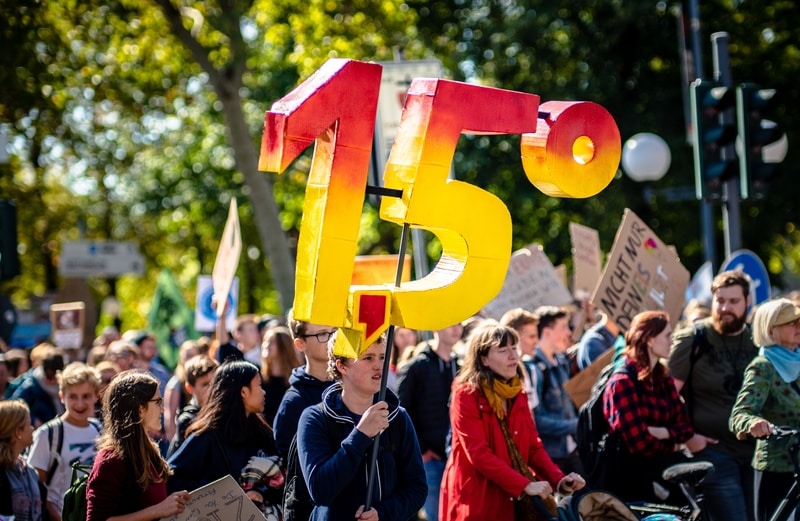Impact Insider: Global Waste
Each year, we generate over 2.12 billion tons of global waste—enough to circle the Earth 24 times if piled onto trucks.
May 15, 2024
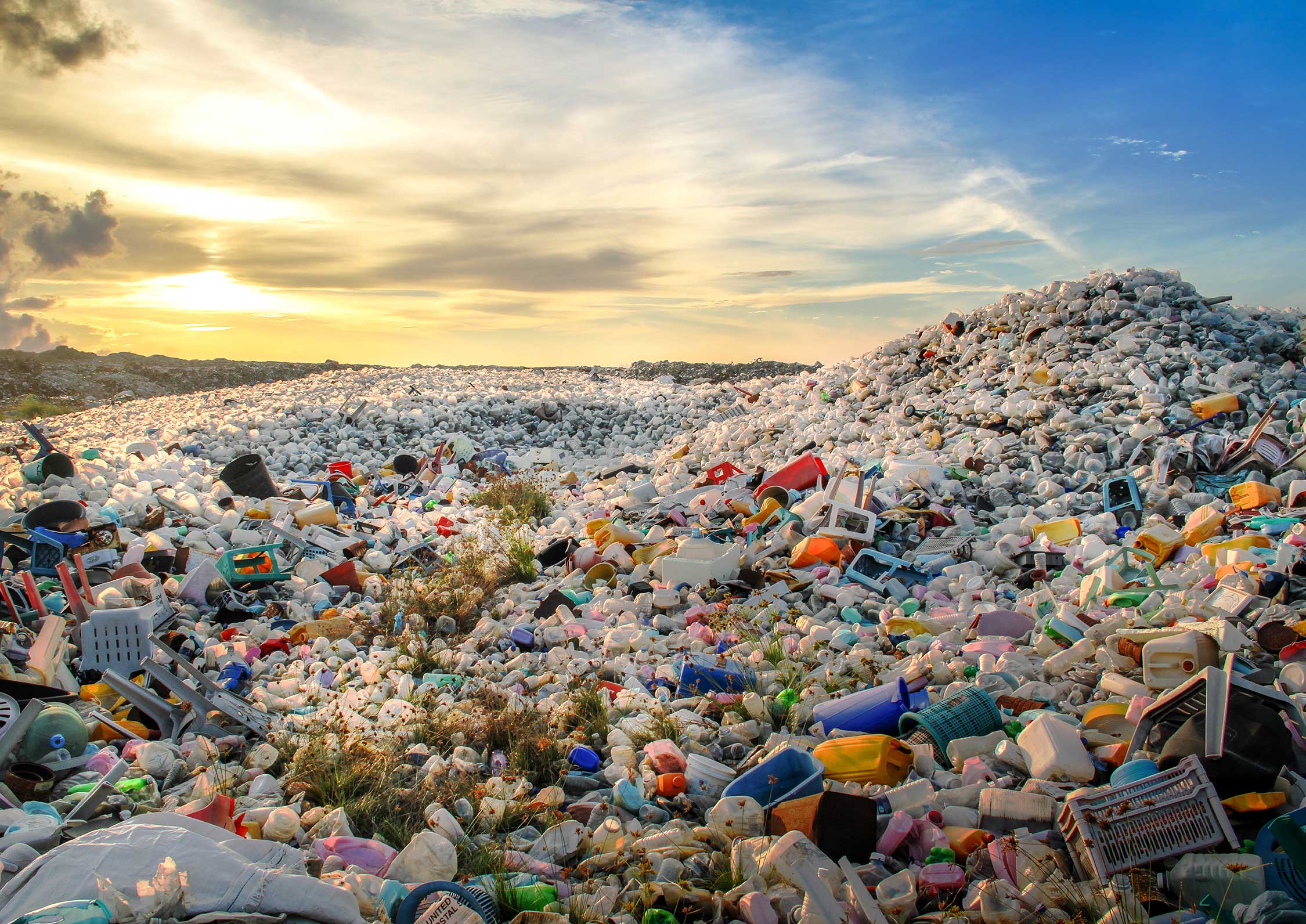
We pat ourselves on the back for our recycling efforts and cleaner streets, but the truth is much dirtier than it appears. Each year, we generate over 2.12 billion tons of global waste—enough to circle the Earth 24 times if piled onto trucks. And shockingly, nearly everything we buy finds its way into the trash within six months.
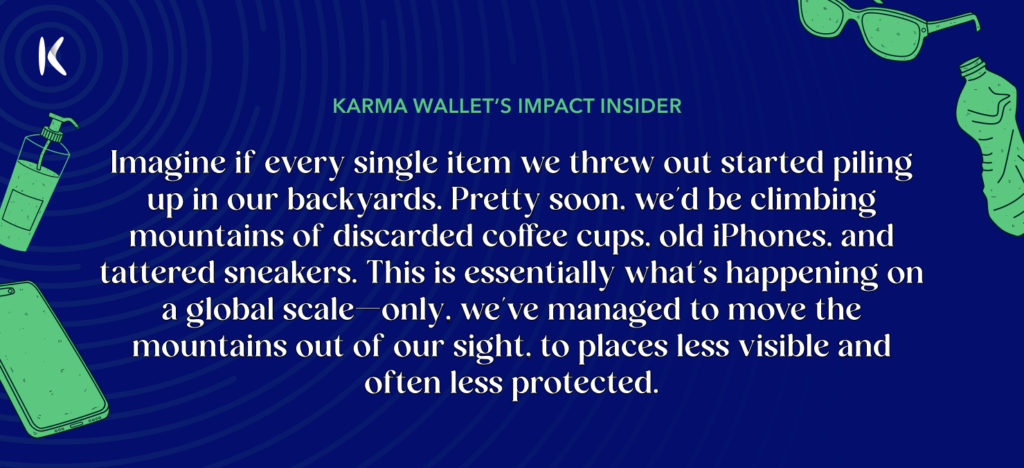
While developed nations boast about shrinking waste footprints, the reality is that much of this waste is simply shuffled off to other parts of the world. Asia and Africa, for instance, have become the unwitting dumping grounds for the West’s electronic and chemical refuse.
This sneaky tactic has a name.

Take the appalling incident in the late 80s where tons of toxic waste were disguised as fertilizer and shipped to Nigeria, causing widespread illness and devastation.
It seems we haven’t learned from this. While, It’s easy to think our waste problem is getting better when we don’t see the trash piling up, out of sight should NOT mean out of mind. The truth is, our planet’s waste problem is growing, and it’s time we see it for what it is—a global crisis that needs a global solution.
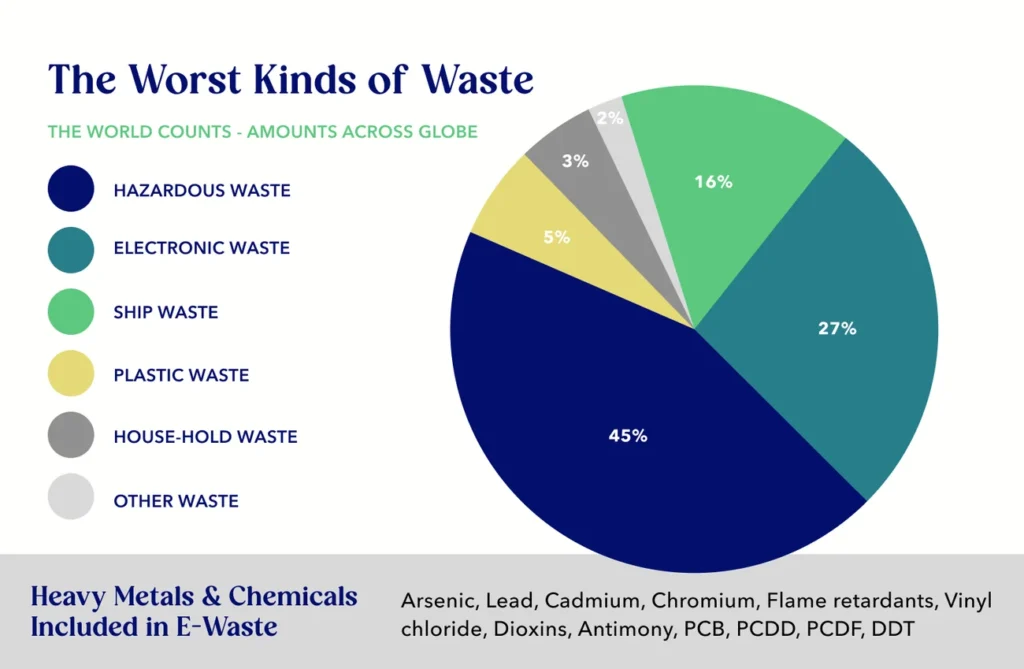


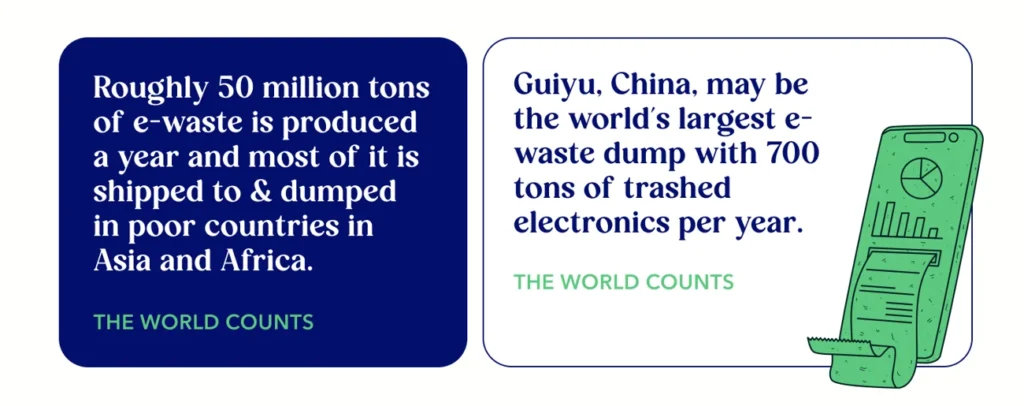
Perhaps it’s time we shift our focus from blaming underdeveloped countries for poor environmental statistics and start holding our own governments accountable, catching them red-handed in contributing to the very problems we criticize.
What We’re Reading
6 Zero-Waste Cookbooks to Reduce Food Waste at Home
Looking to tackle food waste? Dive into these six fantastic zero-waste cookbooks. They’re full of smart, tasty ways to use up every bit of your groceries, helping you save food and the planet at the same time.
How to Recycle Electronics & Reduce E-Waste
Want to cut down on e-waste? This quick guide shows you how to extend your gadgets’ life, recycle responsibly, and make smarter tech choices. Small steps can make a big environmental impact!
Plastic Recycling is a Dead End Street
Greenpeace’s latest report reveals a harsh truth: plastic recycling is failing. Despite increasing plastic waste, only a small fraction actually gets recycled, with rates plummeting as low as 5-6% in 2021.
Switch It Up: Our Top Zero-Waste Picks from DoneGood
Ready to reduce your footprint? Check out these simple swaps that make a big impact.
#1 – Sitti Starter Kit
Dive into zero-waste living with the Sitti Starter Kit. This set includes handmade natural olive oil soaps, a pine wooden soap dish, and a mini-loofah sponge—all crafted to kickstart your sustainable journey.
#2 – Dish Soap Bar – Zero-Waste Package-Free
Say goodbye to plastic with Meliora Cleaning’s Dish Soap Bar. Designed for efficiency and environmental respect, this soap bar offers a powerful clean for dishes without the waste.
#3 – Foaming Hand Soap Refill Tablets – 6-Pack Plastic-Free Boxed
Transform handwashing with Meliora Cleaning’s Fragrance-Free Foaming Hand Soap Refill Tablets. Just one tiny tablet creates 9 oz. of foaming hand soap, eliminating the need for plastic jugs and reducing your household waste.
#4 – Biodegradable Floss (90 ft)
Ditch traditional plastic floss for J&L Naturals’ Biodegradable Dental Floss. Made from eco-friendly materials, this floss helps you maintain dental hygiene without harming the planet.
#5 – Bamboo Cotton Buds 200-Pack
Help stop the plastic tide. J&L Naturals’ Bamboo Cotton Buds are 100% biodegradable, compostable, and made without plastic, making them a perfect swap for traditional swabs.
Hey Everyone,
As we delve deeper into the global waste crisis, it’s evident that the issues are complex and often hidden from the public eye. The practices of waste trading and dumping in vulnerable regions raise serious ethical questions. How should countries and corporations be held accountable for these actions? What role should international regulations play?
I’m eager to hear your perspectives on these challenges. What do you think are the underlying causes of these issues? How can we better inform ourselves and others about the realities of global waste management?
Catch you in the thread! Want to chat? Let’s connect on Calendly. – Kedar Karkare, PhD, Co-Founder of Karma Wallet













